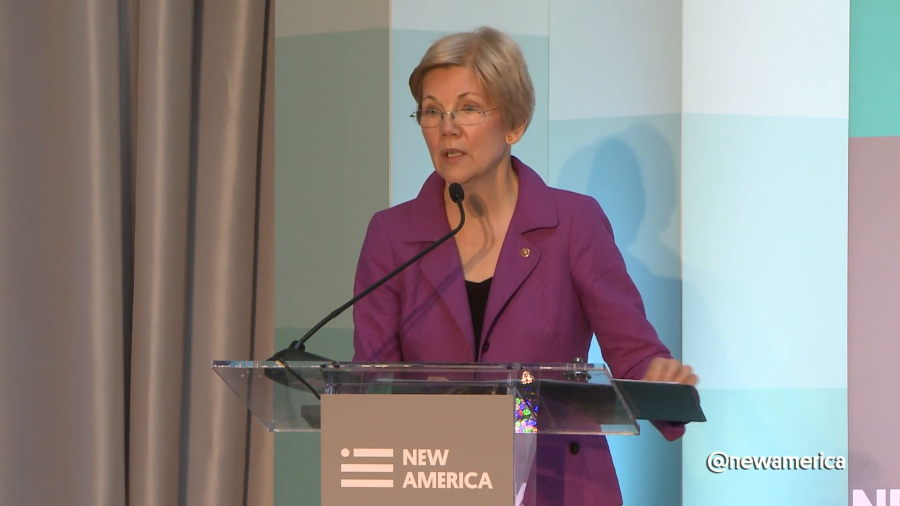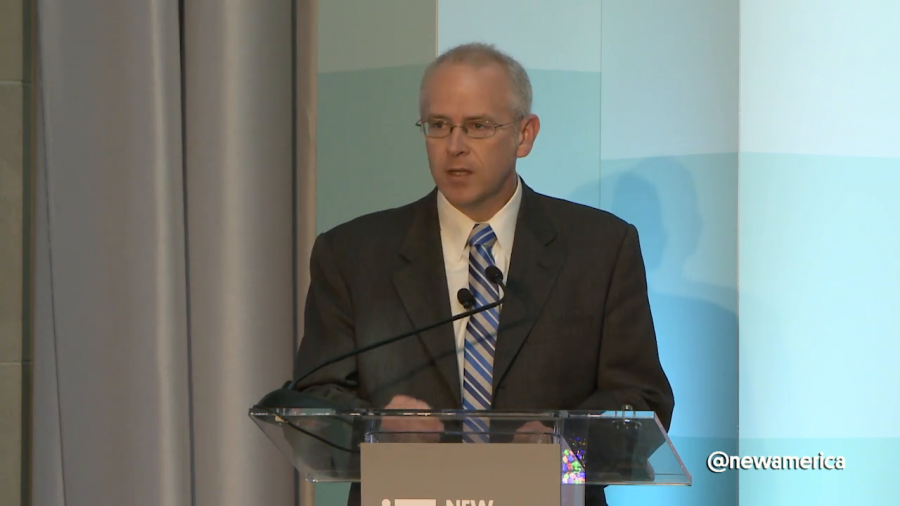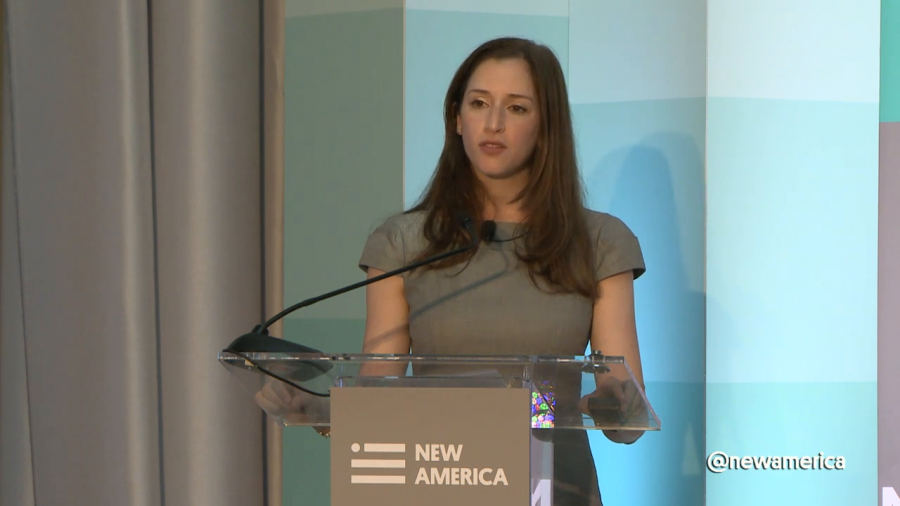Two out of three 8th graders in this country cannot read or do math at grade level. We are not preparing our kids for what the future holds.
New America (Page 4 of 5)

Campbell Brown’s Advice for the Next President
presented by Campbell Brown

Anne-Marie Slaughter’s Advice for the Next President
presented by Anne-Marie Slaughter
Asking any author about a book the President should read immediately makes me think, “Mine, of course.” But what I would actually say is the next president should be Jamie Merisotis’ America Needs Talent.
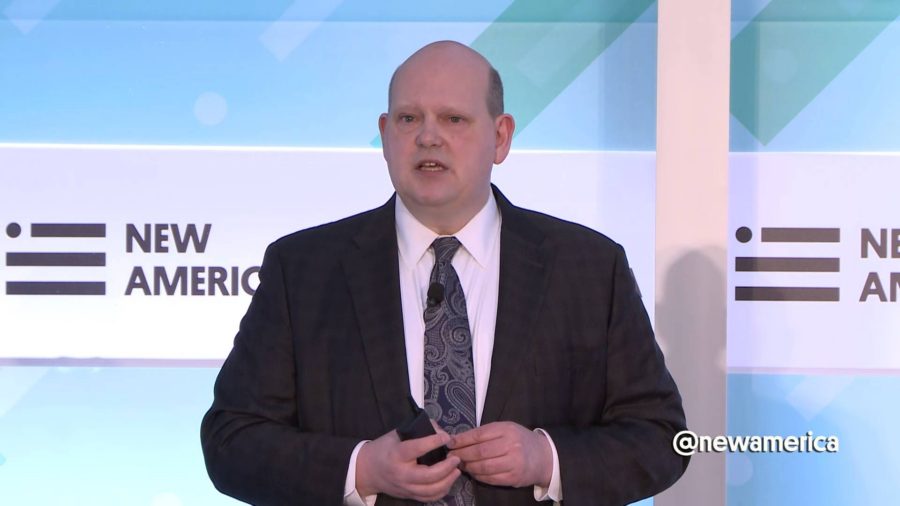
What Will Cybersecurity Look Like in the Next Decade?
presented by Paul Nicholas
Sure, cyberspace is about people and data. But it is also about applications. And devices. And the indirect and non-obvious relationships between all of this. It creates a very complicated and exciting ecosystem. One that is capable of dramatic innovation, and dramatic exploitation.
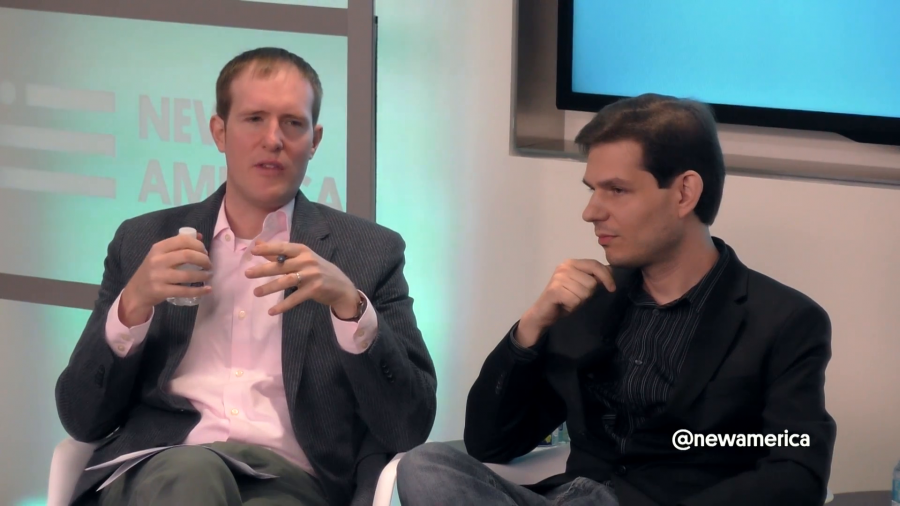
What Our Algorithms Will Know in 2100
presented by Ed Finn, Lee Konstantinou
A lot of the science fiction I love the most is not about these big questions. You read a book like The Diamond Age and the most interesting thing in The Diamond Age is the mediatronic chopsticks, the small detail that Stephenson says okay, well if you have nanotechnology, people are going to use this technology in the most pedestrian, kind of ordinary ways.
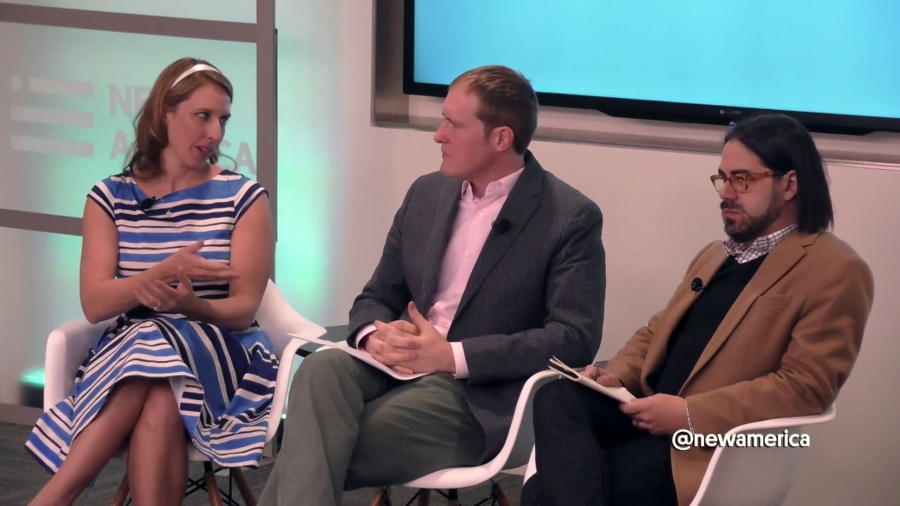
What Should We Know About Algorithms?
presented by Ed Finn, Ian Bogost, Jennifer Golbeck
When I go talk about this, the thing that I tell people is that I’m not worried about algorithms taking over humanity, because they kind of suck at a lot of things, right. And we’re really not that good at a lot of things we do. But there are things that we’re good at. And so the example that I like to give is Amazon recommender systems. You all run into this on Netflix or Amazon, where they recommend stuff to you. And those algorithms are actually very similar to a lot of the sophisticated artificial intelligence we see now. It’s the same underneath.
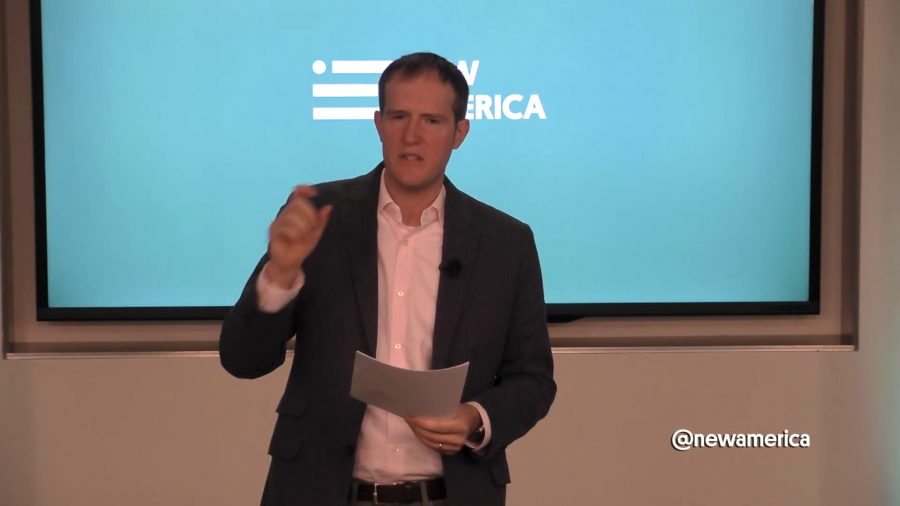
What Do Algorithms Know?
presented by Ed Finn
The Tyranny of Algorithms is obviously a polemical title to start a conversation around computation and culture. But I think that it helps us get into the cultural, the political, the legal, the ethical dimensions of code. Because we so often think of code, and code is so often constructed, in a purely technical framework, by people who see themselves as solving technical problems.
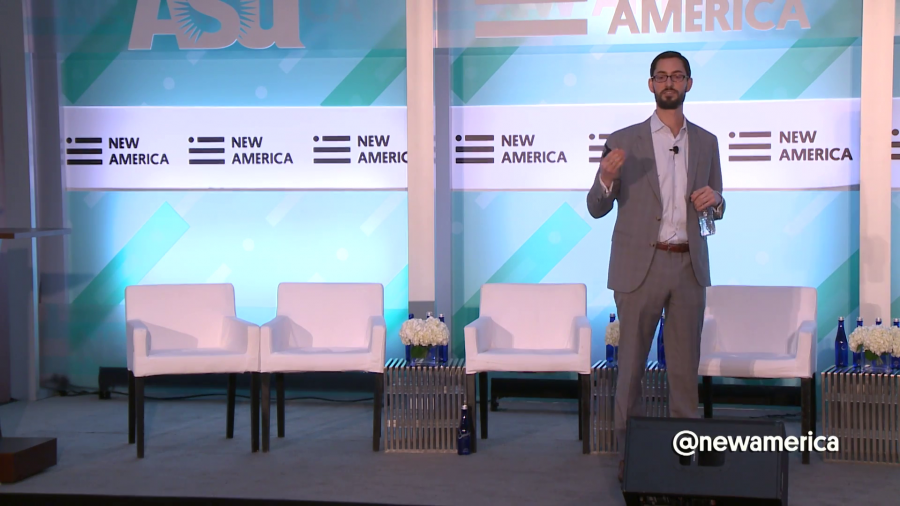
The War Inside: How Will the Human Body be Enhanced for War?
presented by Andrew Herr
I want you to imagine the ability to take a few drops of someone’s blood, to combine that with some cognitive and some physical testing, and to be able to figure out where that person is going to be most effective in your military.

